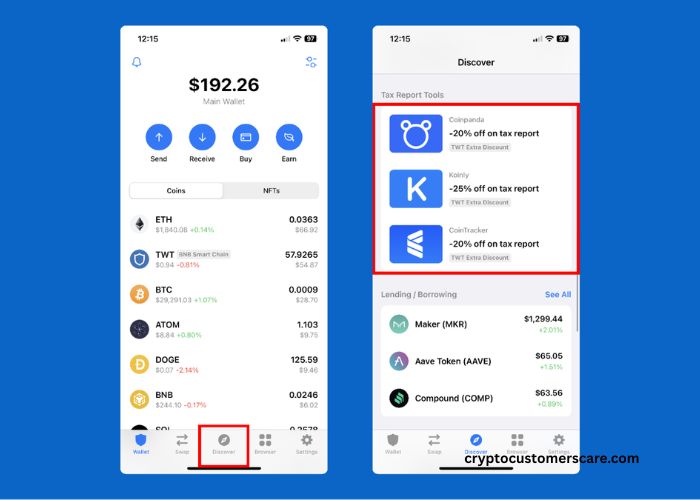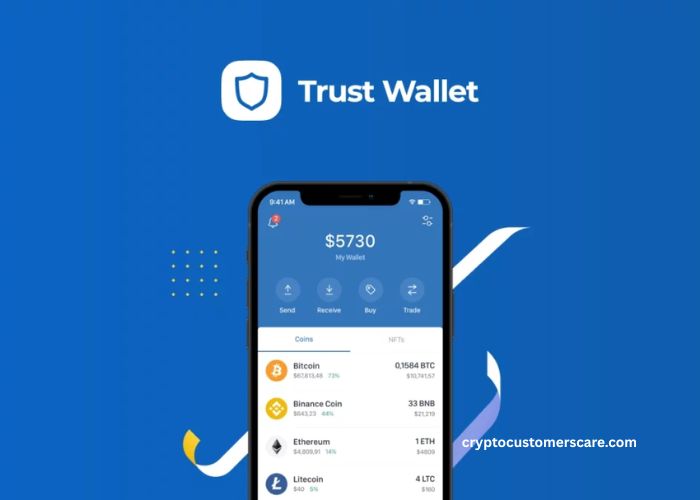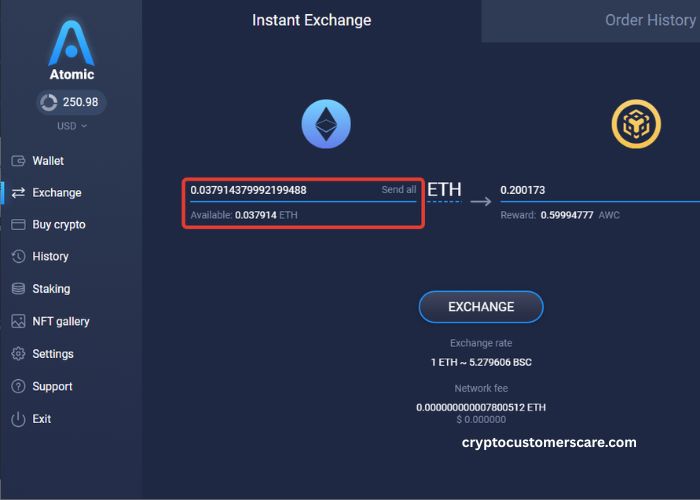Guarda Wallet is a popular cryptocurrency wallet that offers a secure and user-friendly platform for storing and managing digital assets. With a wide range of supported cryptocurrencies and a robust set of features, Guarda Wallet has gained a reputation as a reliable choice for both beginners and experienced users.
When it comes to using any cryptocurrency wallet, it is essential to understand the fees involved. In this article, we will explore the different types of fees charged by Guarda Wallet, factors that determine these fees, and how they compare to other wallets in the market.
Understanding Cryptocurrency Wallet Fees
Cryptocurrency wallet fees are charges incurred for various transactions and services provided by the wallet provider. These fees are necessary to cover the costs associated with maintaining the wallet infrastructure and ensuring the security of user funds.
The most common types of fees associated with cryptocurrency wallets include transaction fees, network fees, and exchange fees. Transaction fees are charged when you send or receive cryptocurrencies using the wallet. Network fees, also known as blockchain fees, are paid to miners to validate and include your transactions in the blockchain. Exchange fees are applicable when you convert one cryptocurrency to another within the wallet.
Types of Fees Charged by Guarda Wallet
Guarda Wallet charges fees for certain transactions and services to ensure the smooth operation of the platform. The specific fees charged may vary depending on the type of transaction and the cryptocurrency involved. Here are some of the common fees you may encounter when using Guarda Wallet:
- Transaction fees: Guarda Wallet charges a small fee for each transaction you make within the wallet. This fee is used to incentivize miners to include your transaction in the blockchain. The exact fee amount varies depending on the cryptocurrency you are transacting with and the current network congestion.
- Network fees: When you send cryptocurrencies from your Guarda Wallet to an external address, you will need to pay network fees. These fees are paid to miners to process and validate your transaction on the blockchain. The network fees are dynamic and depend on the current network conditions.
- Exchange fees: Guarda Wallet provides a built-in exchange feature that allows you to convert one cryptocurrency to another within the wallet. When you make an exchange, Guarda Wallet charges a small fee for facilitating the transaction. The exchange fees may vary depending on the trading pair and market conditions.
Factors That Determine Guarda Wallet Fees
The fees charged by Guarda Wallet are influenced by several factors. Understanding these factors can help you better estimate the fees you may incur when using the wallet. Here are the main factors that determine Guarda Wallet fees:
- Network congestion: The fees charged by Guarda Wallet for transactions and network transfers depend on the current congestion of the blockchain network. During periods of high demand, when many users are transacting, the fees may increase due to the limited capacity of the network.
- Cryptocurrency type: Each cryptocurrency has its own network and transaction fees. Guarda Wallet adjusts its fees based on the specific requirements of each cryptocurrency. The fees for popular cryptocurrencies like Bitcoin and Ethereum may be higher compared to less frequently used cryptocurrencies.
- Transaction size: The size of your transaction, measured in bytes, also affects the fees charged by Guarda Wallet. Larger transactions require more computational resources to process and validate, resulting in higher fees.
- Market conditions: Exchange fees charged by Guarda Wallet for cryptocurrency conversions may vary based on market conditions. The fees can fluctuate depending on factors such as trading volume, liquidity, and market volatility.
Comparing Guarda Wallet Fees With Other Wallets
When choosing a cryptocurrency wallet, it is essential to consider the fees charged by different providers. While Guarda Wallet offers a user-friendly interface and a wide range of supported cryptocurrencies, it is essential to compare its fees with other wallets in the market.
Some wallets may have lower fees for certain transactions or offer fee discounts based on factors such as loyalty or transaction volume. It is recommended to research and compare the fees of different wallets to find the best option that suits your needs.
Tips to minimize Guarda Wallet fees
While fees are an inevitable part of using any cryptocurrency wallet, there are ways to minimize the fees you pay when using Guarda Wallet. Here are some tips to help you reduce your Guarda Wallet fees:
- Use lower fee options: Guarda Wallet provides options to adjust the transaction fees manually. By setting a lower fee, you may experience a slightly longer confirmation time, but you can save on fees, especially during periods of high network congestion.
- Utilize off-peak hours: During peak hours, when many users are transacting, network fees tend to be higher. If possible, schedule your transactions during off-peak hours to take advantage of lower fees.
- Consolidate transactions: Instead of making multiple small transactions, consider consolidating them into a single larger transaction. This approach can help reduce the overall fees you pay, as you will only need to pay the network fees once.
- Stay informed: Keep track of network conditions and cryptocurrency market trends. By staying informed, you can anticipate periods of high network congestion or potential changes in exchange fees, allowing you to plan your transactions accordingly.
Frequently Asked Questions About Guarda Wallet Fees
Q: Are Guarda Wallet fees competitive compared to other wallets in the market?
- A: Guarda Wallet fees are competitive and comparable to other popular cryptocurrency wallets. However, it is always recommended to compare the fees of different wallets to ensure you are getting the best value for your transactions.
Q: Can I avoid paying Guarda Wallet fees?
- A: While it is not possible to avoid all fees when using Guarda Wallet, you can take steps to minimize the fees you pay. By following the tips mentioned earlier, you can reduce the impact of fees on your transactions.
Q: How can I calculate the fees for my Guarda Wallet transactions?
- A: Guarda Wallet provides a fee calculator within the wallet interface. You can enter the transaction details, such as the recipient address and the amount being sent, to estimate the fees before confirming the transaction.
How To Calculate and Track Guarda Wallet Fees
To calculate the fees for your Guarda Wallet transactions, you can utilize the built-in fee calculator provided by the wallet. Simply enter the transaction details, such as the recipient address and the amount being sent, and the calculator will estimate the fees based on the current network conditions.
To track your Guarda Wallet fees, you can access the transaction history within the wallet interface. The transaction history provides a detailed breakdown of the fees incurred for each transaction, allowing you to monitor and analyze your fee expenses.
Guarda Wallet Fee Structure for Different Cryptocurrencies
Guarda Wallet adjusts its fee structure based on the specific requirements of each supported cryptocurrency. The fees charged for transactions, network transfers, and exchanges may vary depending on the cryptocurrency involved.
It is recommended to refer to the Guarda Wallet official website or the wallet interface for the most up-to-date information on the fee structure for different cryptocurrencies.
Conclusion
Guarda Wallet offers a reliable and user-friendly platform for managing your cryptocurrencies. While there are fees associated with using the wallet, these fees are necessary to ensure the smooth operation and security of the platform.
When considering whether Guarda Wallet is worth the fees, it is crucial to evaluate the features, supported cryptocurrencies, and overall user experience provided by the wallet. Additionally, comparing the fees charged by Guarda Wallet with other wallets in the market can help you make an informed decision.
Ultimately, the decision of whether Guarda Wallet is worth the fees depends on your specific needs and priorities as a cryptocurrency user. Take the time to research and compare different wallets to find the one that aligns with your requirements and offers the best value for your transactions.







